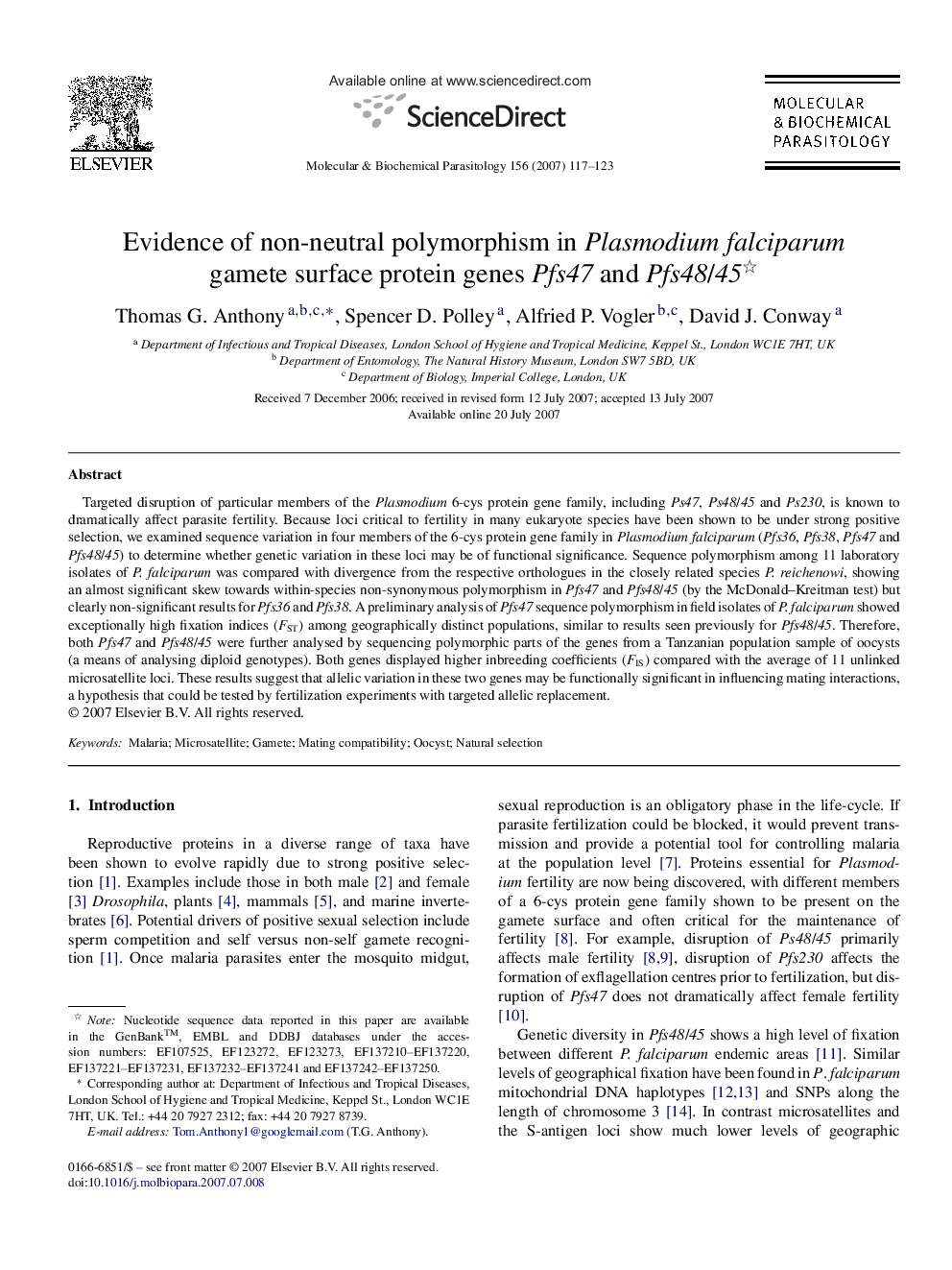| Article ID | Journal | Published Year | Pages | File Type |
|---|---|---|---|---|
| 2830168 | Molecular and Biochemical Parasitology | 2007 | 7 Pages |
Targeted disruption of particular members of the Plasmodium 6-cys protein gene family, including Ps47, Ps48/45 and Ps230, is known to dramatically affect parasite fertility. Because loci critical to fertility in many eukaryote species have been shown to be under strong positive selection, we examined sequence variation in four members of the 6-cys protein gene family in Plasmodium falciparum (Pfs36, Pfs38, Pfs47 and Pfs48/45) to determine whether genetic variation in these loci may be of functional significance. Sequence polymorphism among 11 laboratory isolates of P. falciparum was compared with divergence from the respective orthologues in the closely related species P. reichenowi, showing an almost significant skew towards within-species non-synonymous polymorphism in Pfs47 and Pfs48/45 (by the McDonald–Kreitman test) but clearly non-significant results for Pfs36 and Pfs38. A preliminary analysis of Pfs47 sequence polymorphism in field isolates of P. falciparum showed exceptionally high fixation indices (FST) among geographically distinct populations, similar to results seen previously for Pfs48/45. Therefore, both Pfs47 and Pfs48/45 were further analysed by sequencing polymorphic parts of the genes from a Tanzanian population sample of oocysts (a means of analysing diploid genotypes). Both genes displayed higher inbreeding coefficients (FIS) compared with the average of 11 unlinked microsatellite loci. These results suggest that allelic variation in these two genes may be functionally significant in influencing mating interactions, a hypothesis that could be tested by fertilization experiments with targeted allelic replacement.
